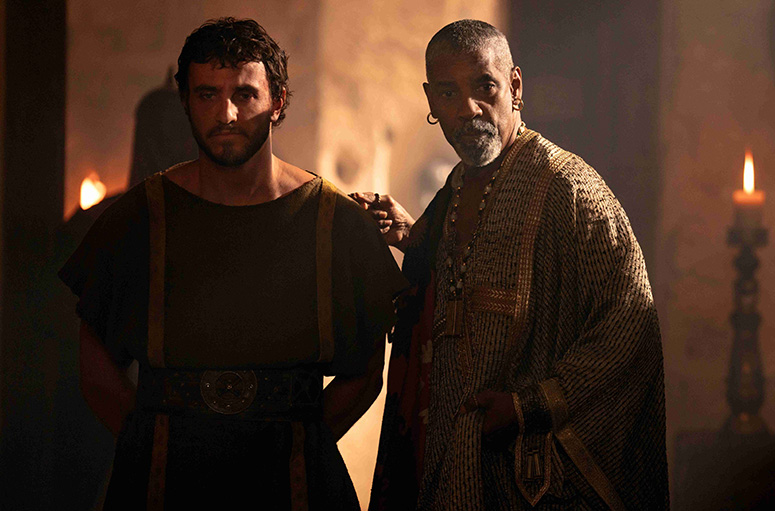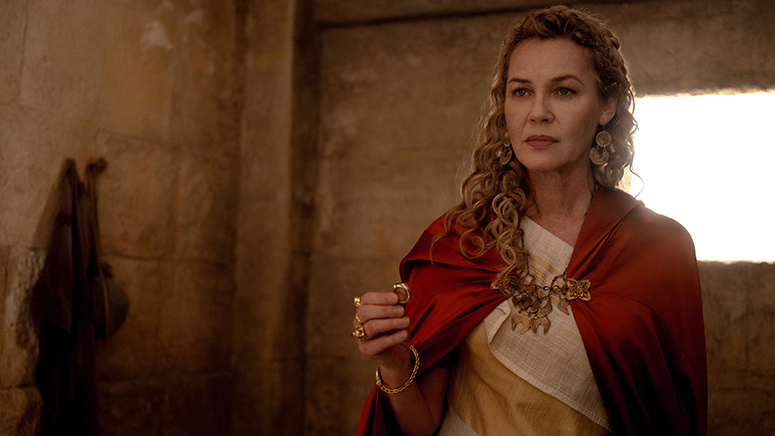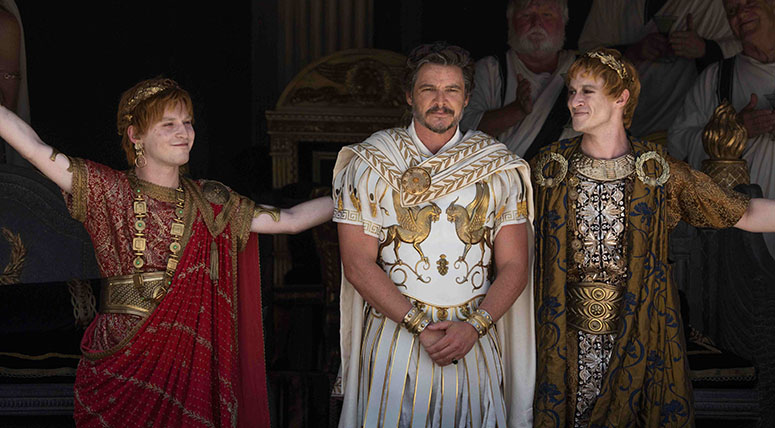REVIEW: 'Gladiator II' dishonors a classic epic
After a brutal battle with Roman forces, a disgraced military commander is enslaved and sold to an ambitious nobleman. Driven by the memory of his slain wife, the slave is trained to fight in Rome’s gladiatorial arena, where his subsequent fame threatens the ruling elite. As political forces vie for control behind the scenes, the gladiator will fight to exact revenge on the rulers of Rome.
This is the synopsis for Ridley Scott’s award-winning historical epic, Gladiator, released in 2000. Stripped of quality and nuance, it is also the synopsis for Ridley Scott’s Gladiator II, a sequel that exists against all common sense and reason, and the first film wherein the title character literally died at the end.
How the mighty have fallen... again.
Towards the end of the ‘90s, director Ridley Scott needed a hit; while still respected for films like Alien (1979), Blade Runner (1982), and Thelma & Louise (1991), his most recent projects, 1492: Conquest of Paradise (1992), White Squall (1996), and G.I. Jane (1997) had received mixed reviews and middling box office receipts.

The release of Gladiator would change all that, restoring Scott to the Hollywood A-List, while elevating Russel Crowe—already known for his brilliant work in 1997’s L.A. Confidential– from respected actor to bankable leading man. The second-highest-grossing film of 2000, Gladiator was a hit with audiences and critics, earning 12 Academy Awards nominations, and winning five, including Best Actor for Crowe and Best Picture. The film’s success revived Hollywood’s fascination with historical epics, with Troy, King Arthur, Alexander, and Scott’s own Kingdom of Heaven being released in its wake.
Which brings us to Gladiator II. After years of proposed sequels where Crowe’s deceased Maximus wages immortal combat across multiple periods, the film is a straightforward follow-up, albeit one with so many recreations and callbacks to previous scenarios, one wonders why they didn’t just re-release the original.
This isn’t even a case of a legacy sequel repurposing familiar elements to tell a (somewhat) new story, a la The Force Awakens (2015), Scream (2022), or Ghostbusters Afterlife (2021)—it feels more like a filmmaker’s sad attempt to relive past glories, rather than seek for anything new, much less original. Where Francis Ford Coppola at least dared to swing for the fences in (the spectacularly terrible) Megalopolis, Scott can make no such claim—Gladiator II is derivative at best and incredibly dull at worst. Even Netflix’s godawful English-language sequel to Crouching Tiger, Hidden Dragon (yes, that exists) aimed higher than this.

While the production design and costumes are superb, meeting the minimum requirements for a historical epic can hardly be considered an achievement. This isn’t so much a film as it is the worst kind of tone-deaf vanity project—sequences start and stop without rhyme or reason, characters are so ill-defined as to be practically abstract, and plot points are introduced with narrative subtleties the WWE would find excessive.
Paul Mescal stars as Hanno, the put-upon military commander following in Maximus’ footsteps. (Though you’ll be forgiven for not remembering him, as he accomplishes the genuinely impressive task of making no impression on the audience whatsoever.) In all fairness, having anyone step into Crowe’s gladiatorial sandals was always going to be a big ask, so one can’t help but feel bad for Mescal. In addition to multiple namedrops and actual flashbacks throughout, Gladiator II opens with a stylized montage of clips from the first film, driving home how derivative and unnecessary a sequel was in the first place.
The cast can’t be blamed for this, as heavyweights Denzel Washington (Training Day, The Equalizer), Pedro Pascal (The Last of Us, The Mandalorian), and Joseph Quinn (Stranger Things, A Quiet Place: Day One) are arguably doing their best to make David Scarpa’s screenplay coherent.
At the very least, Pascal attempts to give his character a modicum of dignity. Still, Quinn’s demented emperor is a bad parody of Joaquin Phoenix’s manic turn in the first film, while Washington looks like he’s in a different movie altogether. Connie Nielsen and Derek Jacobi return as noblewoman Lucilla and Senator Gracchus, respectively, but given how little bearing their characters have on the proceedings, one hopes they got paid well for doing this film.

Gladiator II fails so completely that ostensibly spectacular sequences (such as filling the Colosseum with seawater and sharks) are overshadowed by the abject incompetence of the film’s overall execution. The storyline of Pascal’s General Acacius, a man forced to swallow his pride in the service of his psychotic ruler(s), is the perfect example of a missed opportunity; existing as a tantalizing reflection of Maximus, had the latter acceded to obeying his own unhinged emperor’s wishes, it’s easy to imagine a film built around Acacius and Lucilla’s efforts to restore the Roman Republic from the inside, as opposed to being overshadowed by things we’ve seen before in the name of a twist that the trailer already announced.
As it stands, Pascal and Nielsen’s pairing is one of the few things that Gladiator II gets right, even if it never quite knows what to do with them.
In another reality, there would be laws against making sequels to films that don’t need them, and there—alongside every Disney animated film, The Matrix, and most blockbuster comedies—would stand Gladiator, pristine and unblemished.
As it is, we live in this reality, so do yourself a favor, and go watch Wicked instead.


